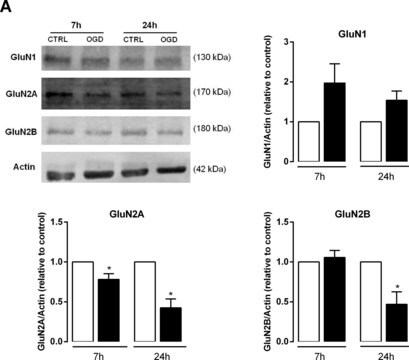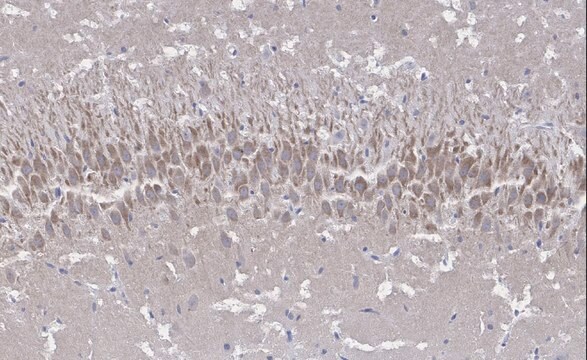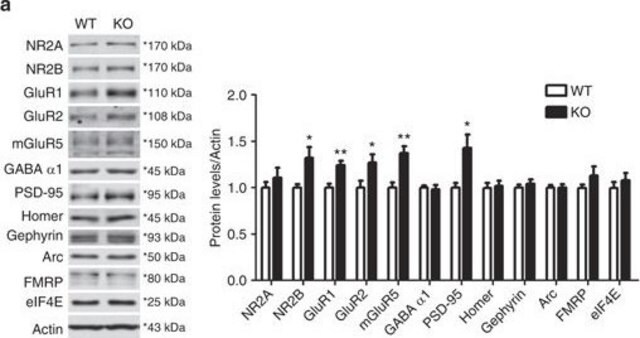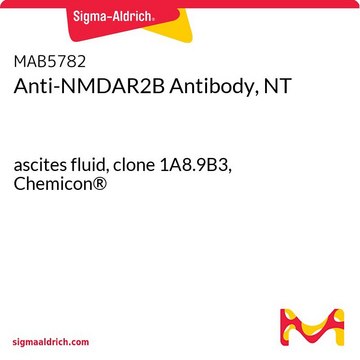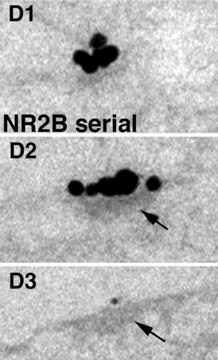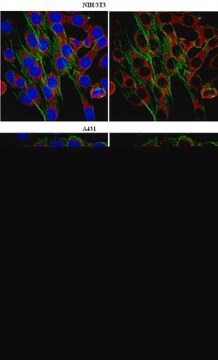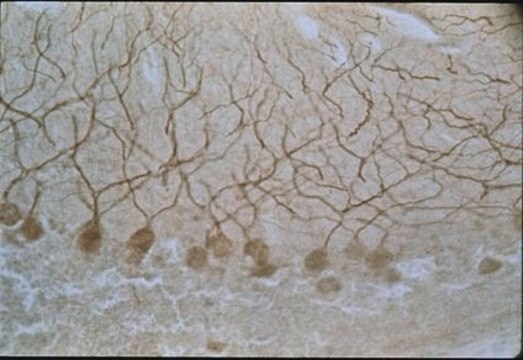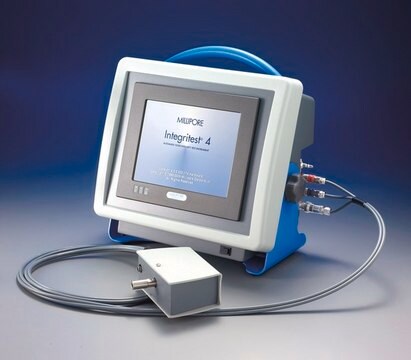MAB5216
Anti-NMDAR2A Antibody
Chemicon®, from mouse
Synonyme(s) :
NR2A
About This Item
Produits recommandés
Source biologique
mouse
Niveau de qualité
Forme d'anticorps
affinity purified immunoglobulin
Clone
monoclonal
Espèces réactives
human
Fabricant/nom de marque
Chemicon®
Technique(s)
immunocytochemistry: suitable
immunohistochemistry (formalin-fixed, paraffin-embedded sections): suitable
western blot: suitable
Isotype
IgG1
Numéro d'accès NCBI
Numéro d'accès UniProt
Conditions d'expédition
dry ice
Modification post-traductionnelle de la cible
unmodified
Informations sur le gène
human ... GRIN2A(2903)
Immunogène
Application
Immunocytochemistry: 2.5-5.0μg/mL
Western blot: 1-5 μg/mL Optimal working dilutions must be determined by end user.
Neuroscience
Neurotransmitters & Receptors
Liaison
Forme physique
Stockage et stabilité
Autres remarques
Informations légales
Clause de non-responsabilité
En option
Code de la classe de stockage
12 - Non Combustible Liquids
Classe de danger pour l'eau (WGK)
nwg
Point d'éclair (°F)
Not applicable
Point d'éclair (°C)
Not applicable
Certificats d'analyse (COA)
Recherchez un Certificats d'analyse (COA) en saisissant le numéro de lot du produit. Les numéros de lot figurent sur l'étiquette du produit après les mots "Lot" ou "Batch".
Déjà en possession de ce produit ?
Retrouvez la documentation relative aux produits que vous avez récemment achetés dans la Bibliothèque de documents.
Notre équipe de scientifiques dispose d'une expérience dans tous les secteurs de la recherche, notamment en sciences de la vie, science des matériaux, synthèse chimique, chromatographie, analyse et dans de nombreux autres domaines..
Contacter notre Service technique